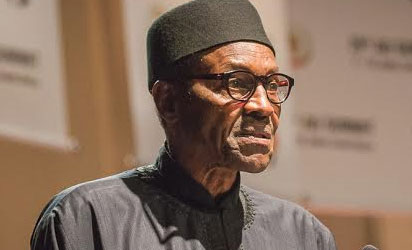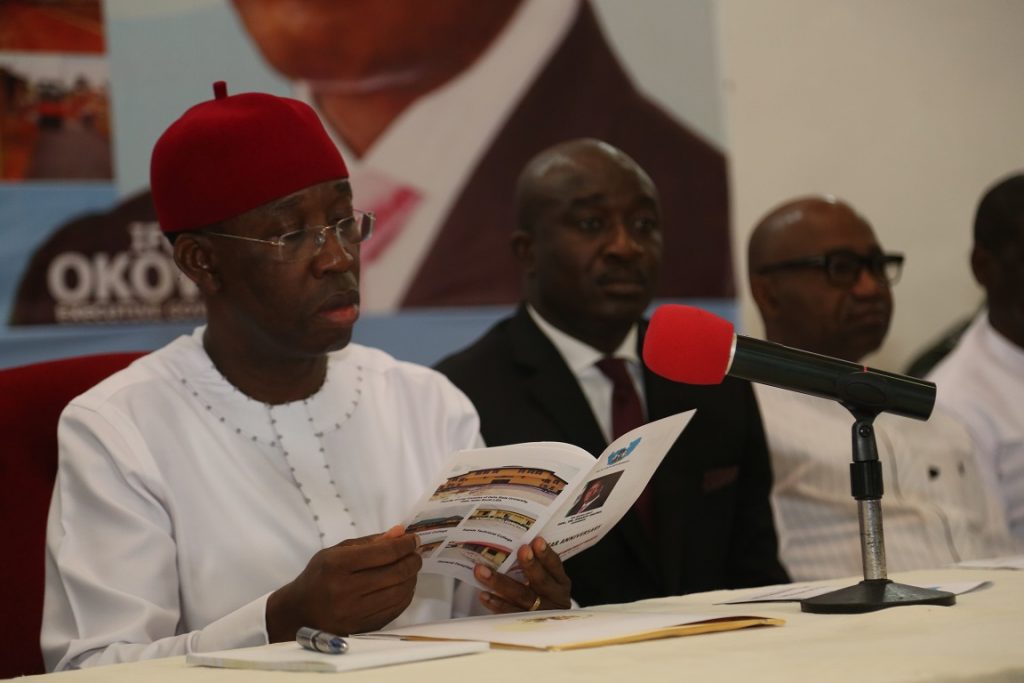Mr. Speaker,
Honourable Members.
As is customary, it is important to express my appreciation to this honourable House for the opportunity to make this presentation today. As an elected Governor, I consider myself and, indeed, the State blessed by the candour and civility with which this House conducts its business. It is one that makes for unabridged development and I continue to count on this strong partnership as we strive to build a Stronger Delta standing on the tripod of Prosperity, Peace and Progress.
2. I will begin by saying that I am presenting this budget from a position of cautious optimism. Several reasons account for this.
Beginning with recent trends in the oil sector, the mainstay of the national economy, there are major policy issues which face the country, not only in this new budget year, but over the medium term, which will impact significantly on politics and governance at all levels of Government.
Although the global price of oil remains relatively stable at about $57 per barrel, it is still low and under the federal budget benchmark of $60. Matched against the fluctuating oil production levels, which, in recent months, dropped to as low as 1.78mbpd as against the projected 2.18mbpd, there is serious cause for concern.
Coupled with the commencement of the deduction at source of the Bail Out Funds to the States by the Federal Government, we are faced with the prospects of continual fiscal adjustments that will doubtless be challenging and problematic.
Although all available indices project a positive national economic outlook in 2020, the cost of governance at all levels of government is at the same time expected to rise sharply with the implementation of the new minimum wage.
The new VAT regime of 7.5%, designed to shore up the national revenue, more than likely, will not induce any dramatic changes in terms of the net gain to the fiscal revenue as the anticipated increase will largely be offset by the attendant rise in the cost of goods and services as well as the new minimum wage.
While the various reforms and fiscal adjustments of the last four years of this administration have placed Delta State on a much more secure and sustained growth trajectory, our GDP is still dominated by the oil and gas sector notwithstanding significant incremental outputs from the social services and agriculture sectors.
The pension liability of the State remains onerous and continues to exert a huge toll on our finances.
Private investment is still hampered by environmental factors, notably high interest rates, macro-economic instability and security concerns.
3. Given the above scenario, the 2020 budget proposals, the first in the second tenure of this administration, is a critical budget and even if we focus on one objective, that of achieving stability in governance, it is one requiring deep introspection and public understanding. The broad strategy of the budget, therefore, is to:
i.Achieve fiscal stability and promote accountability as imperatives for sustained economic growth;
ii.Prioritise efficiency in expenditure through stringent control on non-productive expenditure, judicious allocation of resources and cost effectiveness of project delivery;
iii.Accelerate rural-urban integration and urban renewal through roads and flood control infrastructure, markets development, housing and sanitation;
iv.Grow the non-oil sectors to produce an economy that is truly diversified, self-reliant, resilient and that can withstand external shocks;
v.Continue to pursue Health for all Deltans (HeFAD) in line with the Universal Health Coverage mandate of the United Nations Sustainable Development Goals;
vi.Increase investment in youth entrepreneurship development programmes as well as technical/vocational education designed to foster a new generation of wealth creators, business leaders and managers;
vii.Deepen and strengthen our social investment programmes for improved protection of the poor and vulnerable segments of the society;
viii.Escalate our peace building initiatives to secure our oil and gas installations, ensure public safety and engender an investor-friendly climate;
ix.Boost revenue through widening of the tax base and administration of a functional tax regime that is fair, just and equitable; and
x.A more responsive and efficient public sector.




